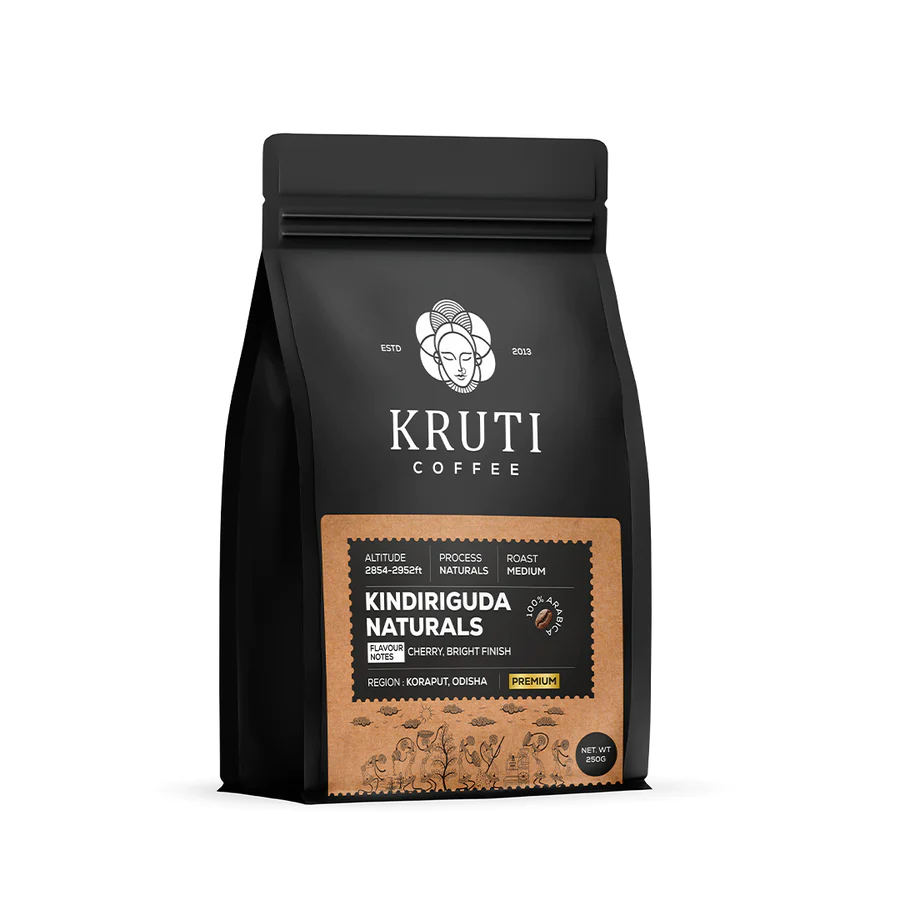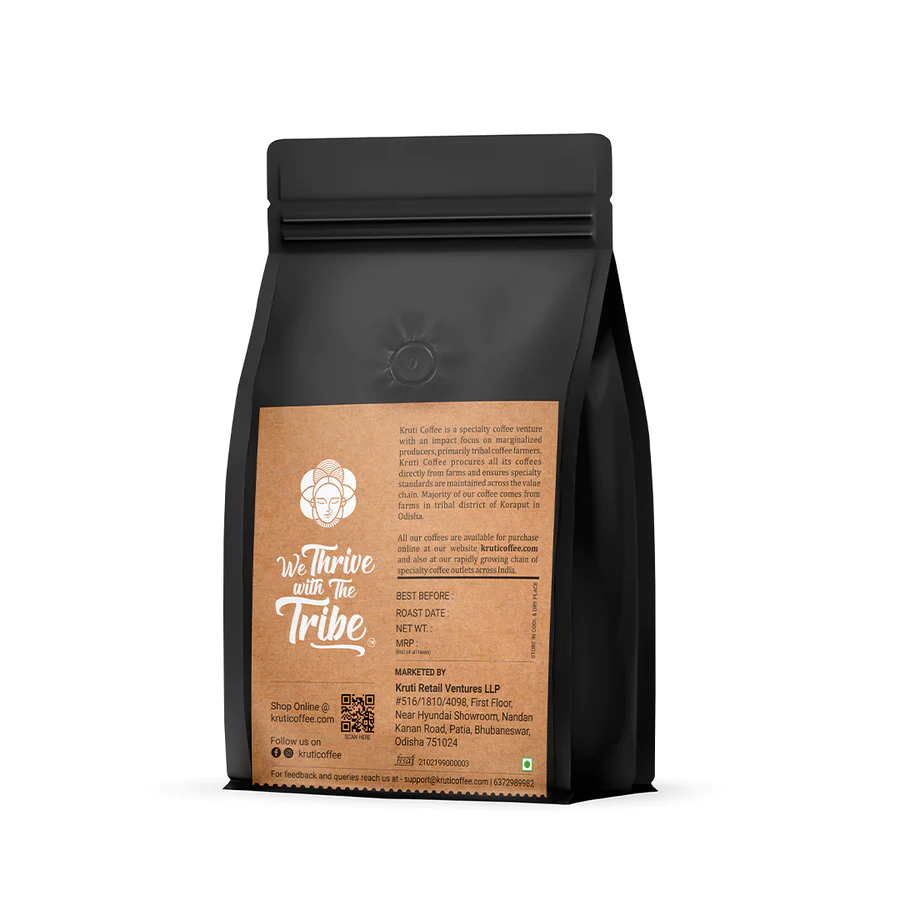Kruti Coffee – Kindiriguda Naturals ( 100% Arabica Coffee Beans, Medium Roast, 250 Gm)
₹450.0
-
Product Info
100% ARABICA | SINGLE ORIGIN
PROCESS: NATURALS
FLAVOUR: CHERRY, BRIGHT FINISH
ROAST: MEDIUM ALTITUDE: 2854-2952 FT MSL
ORIGIN: KINDIRIGUDA, KORAPUT
USP: FOREST GROWN, SHADE GROWN , TRIBAL GROWN
QUANTITY: 250 GRAMS
This specialty naturals coffee from Kindiriguda, Koraput- “Kindiriguda Naturals” has been roasted medium to get the finer taste notes that are characterestic of this coffee. This coffee goes nicely as black coffee brewed manually.
Please select the grind preference based on the equipment you will be using to brew your coffee. We will grind as per your preference, before shipping the coffee to you (with best compliments from us).
About Kindiriguda: A small tribal village of 40 families in Koraput, Odisha. Kruti Coffee supports Kindiriguda tribal coffee farmers across the value chain to ensure specialty standards are maintained throughout. The coffee in this packet is from the 2021-2022 batch of naturals coffee from Koraput which was carefully dried on raised beds to maintain consistency.
- Description
- Additional information
- Reviews (0)
- Q & A
- Sustainability Remark
- More Offers
- Store Policies
- Inquiries
| brands | Kruti Coffee |
|---|---|
| Weight | 250 grams |
You must be logged in to post a review.
Q & A
Organic coffee is generally considered more sustainable compared to conventionally grown coffee due to several reasons. Here are some key aspects of the sustainability of organic coffee:
Environmental Impact: Organic coffee farming practices prioritize the use of natural methods to maintain soil fertility and prevent erosion. They avoid the use of synthetic pesticides, herbicides, and fertilizers, which reduces the pollution of soil, water, and surrounding ecosystems. Organic farming also encourages biodiversity by promoting the growth of shade trees and providing habitats for birds and other wildlife.
Soil Health: Organic coffee farmers focus on building and preserving healthy soil. They rely on techniques such as composting, crop rotation, and the use of organic matter to enhance soil fertility, structure, and moisture retention. These practices help maintain long-term soil health and productivity, minimizing the need for external inputs.
Water Conservation: Organic coffee farms often implement water conservation practices such as mulching and using efficient irrigation methods to minimize water usage. These practices help preserve water resources and reduce the strain on local water systems, especially in regions prone to water scarcity.
Worker Health and Safety: Organic coffee farming typically involves the use of fewer synthetic chemicals, which can lead to improved health and safety conditions for farmers and workers. By avoiding exposure to potentially harmful pesticides, organic coffee farmers and their communities are better protected from health risks associated with chemical use.
Certification and Standards: Organic coffee is certified by various organizations such as the United States Department of Agriculture (USDA) or the European Union Organic logo. These certifications ensure that the coffee meets specific organic standards and is produced in an environmentally and socially responsible manner.
It's important to note that while organic coffee production can contribute to sustainability, other factors also play a significant role, such as fair trade practices, responsible water management, and the overall supply chain transparency. Supporting certified organic coffee and engaging with brands that prioritize sustainability throughout their operations can contribute to a more sustainable coffee industry.
General Inquiries
There are no inquiries yet.


















Reviews
There are no reviews yet.